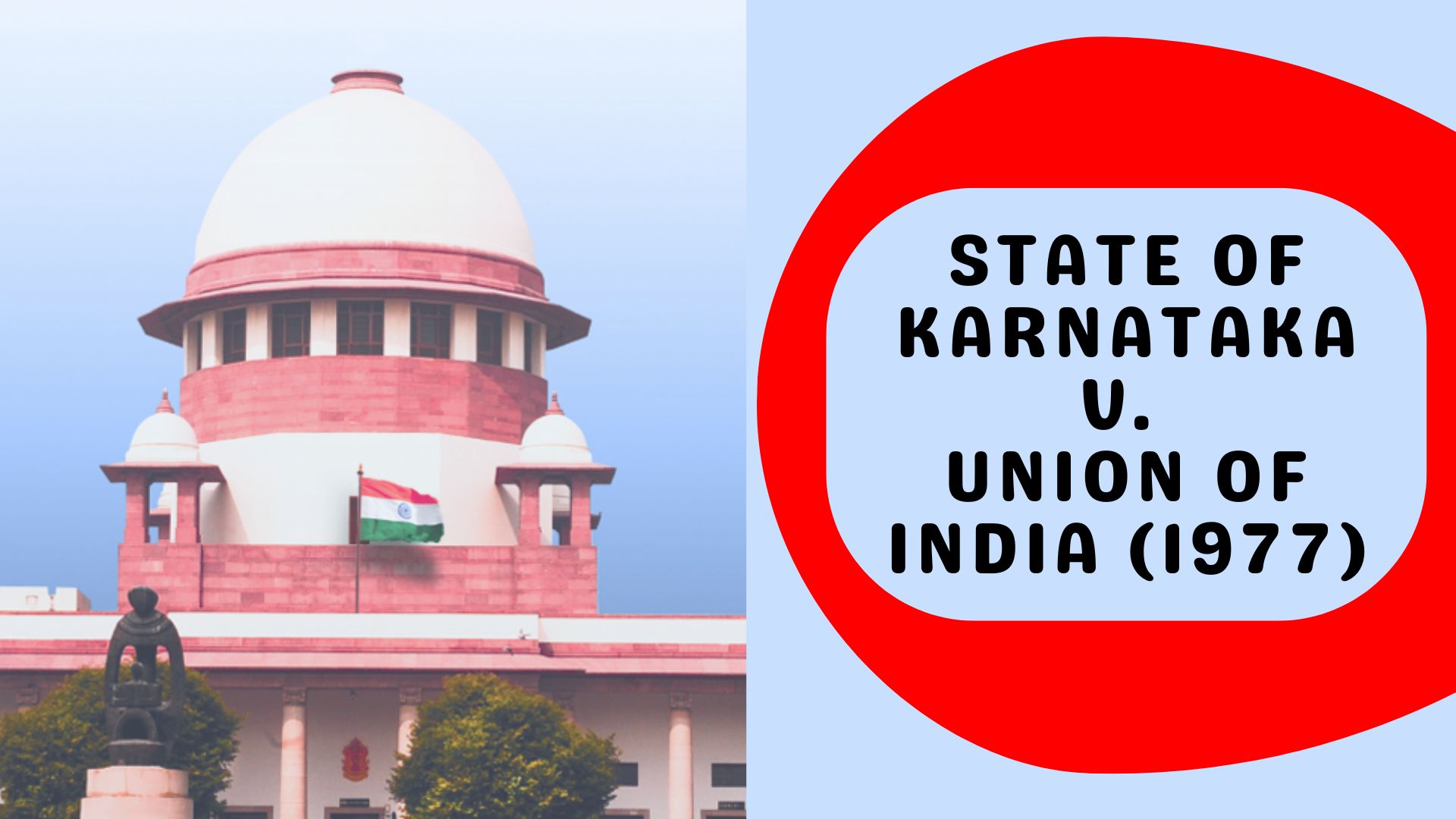
Case Summary: State of Karnataka v. Union of India (1977) 11 SC CK 0011
**Case Stats:**
Name of the Court: Supreme Court of India
Case No.: Original Suit No. 8 of 1977
Date of Decision: 08-11-1977
Bench: Full Bench – M. Hameedullah Beg, C.J.; Y.V. Chandrachud, J.; P.S. Kailasam, J.; P.N. Shingal, J.; P.N. Bhagwati, J.; N.L. Untwalia, J.; Jaswant Singh, J.
Advocates: L.N. Sinha, R.N. Byra Reddy, S.C. Agrawal, Vinoo Bhagat, Narayan Nettar, S.N. Kacker, Solicitor General, Soli J. Sorabjee, Addl. Solicitor General, R.N. Sachthey, E.C. Agarwala, Girish Chandra for Defendant No. 1
Final Decision: Dismissed
Citations: AIR 1978 SC 68; (1977) 4 SCC 608; (1978) 2 SCR 1
[Judgment Source]
https://www.courtkutchehry.com/Judgement/Search/AdvancedV2?docid=285563
Facts of the Case
The State of Karnataka challenged a Central Government notification dated 23-05-1977 constituting a one-man Commission of Inquiry (Justice A.N. Grover) under Section 3 of the Commissions of Inquiry Act, 1952, to investigate allegations of corruption, nepotism, favouritism, and misuse of governmental power against the Chief Minister and other Ministers of Karnataka. Karnataka argued that the inquiry encroached on its exclusive legislative and executive domain and violated the federal structure, as similar allegations were already being investigated by a State-appointed Commission.
Law Points Raised
1. Whether the Central Government has power under Section 3 of the Commissions of Inquiry Act to inquire into matters falling within the exclusive State domain.
2. Whether the proviso to Section 3(1)(b) bars a Central inquiry when a State inquiry on the same matter is ongoing.
3. Whether such Central action violates the federal structure and basic features of the Constitution.
4. Whether Article 131 jurisdiction is attracted in the absence of a legal right of the State being infringed.
Acts / Provisions / Articles Referred
• Constitution of India: Articles 4, 105, 131, 131A, 154, 164(2), 166(3), 248, 256, 257, 356, 368
• Commissions of Inquiry Act, 1952: Sections 1(2), 3(1), 3(4), 5
• Government of India Act, 1935: Sections 49(1), 59(3), 204
• Indian Penal Code, 1860: Sections 176, 177
Judgements Referred
• Precedents interpreting the Commissions of Inquiry Act and constitutional federalism principles
• Cases on the scope of Article 131 jurisdiction
Obiter Dicta
The Court observed that while the federal structure is part of the Constitution’s basic framework, the Central Government retains authority to initiate inquiries into matters of public importance, including conduct of State Ministers, when such matters have national significance.
Ratio Decidendi
The Central Government's inquiry did not relate to the 'same matter' as the State inquiry within the meaning of Section 3(1) proviso (b). Even if some allegations overlapped, the scope and subjects were distinct. The Central Government acted within its powers under the Commissions of Inquiry Act.
Final Ruling
The Supreme Court dismissed Karnataka’s suit, holding that the Central Government’s notification was valid and within its statutory competence. No violation of the federal structure or constitutional provisions was established.
Summary
This judgment affirmed the Central Government’s power under the Commissions of Inquiry Act to investigate matters involving State Ministers when issues are of public importance and national concern. The decision clarified that such an inquiry does not necessarily violate federal principles, especially when its scope differs from a State-level inquiry.
[Judgment Source]
https://www.courtkutchehry.com/Judgement/Search/AdvancedV2?docid=285563